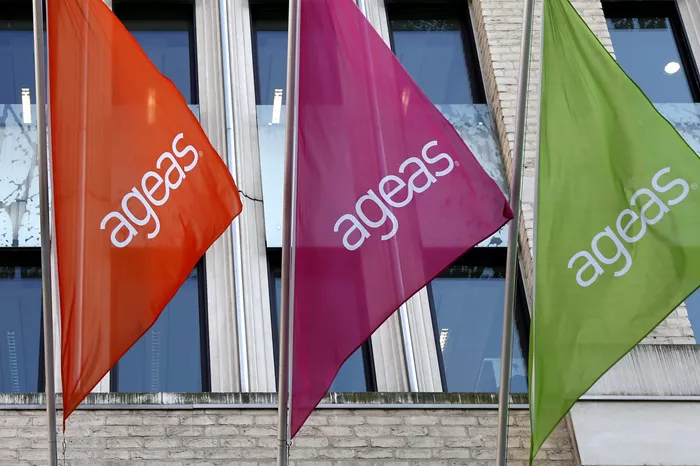Workers’ compensation is a system designed to provide financial support and medical benefits to employees who suffer a work-related injury or illness. While the concept is widely recognised around the world, particularly in the US, it is important to understand whether workers’ compensation exists in the UK, how it is handled in the UK and what employees can expect in terms of support and when they can receive compensation.
The Concept of Workers’ Compensation in the UK
In the United Kingdom, the approach to workers’ compensation differs from that of other countries like the United States. The UK does not have a specific “workers’ compensation” system as it is known in the US. Instead, the UK’s framework for dealing with work-related injuries and illnesses is embedded within the broader legal and insurance system, primarily through Employer’s Liability Insurance and Social Security benefits.
Employer’s Liability Insurance
Under UK law, every employer is required to have Employer’s Liability Insurance. This insurance is a legal requirement under the Employer’s Liability (Compulsory Insurance) Act 1969, and it is designed to cover the costs of compensation for employees who are injured or become ill as a result of their work. The insurance must cover at least £5 million, though most policies typically provide coverage for a higher amount.
Employer’s Liability Insurance ensures that if an employee suffers a workplace injury or illness, they can make a claim against the employer’s insurance policy. The insurance will then cover the compensation that the employee is entitled to receive, which can include compensation for pain and suffering, loss of earnings, medical expenses, and other related costs.
Social Security Benefits
In addition to Employer’s Liability Insurance, the UK also provides Social Security benefits to workers who are injured or become ill due to their job. These benefits include:
Statutory Sick Pay (SSP): Employees who are unable to work due to a work-related injury or illness are entitled to receive SSP from their employer for up to 28 weeks. The current rate (as of 2024) is £109.40 per week, but this rate can change, so it’s important to check the latest figures.
Industrial Injuries Disablement Benefit (IIDB): This benefit is available to employees who are injured or disabled as a result of their work. The amount of IIDB varies depending on the severity of the disability and the level of impact on the employee’s ability to work.
These benefits are designed to provide immediate financial support to employees who are temporarily or permanently unable to work due to a workplace injury or illness.
Making a Claim for Compensation
When an employee suffers a workplace injury or illness, they have the right to make a claim for compensation. This process typically involves several steps:
Report the Injury: The first step is to report the injury or illness to the employer as soon as possible. The report should include details of the injury, how it occurred, and any witnesses who were present.
Seek Medical Attention: It is crucial to seek medical attention immediately after the injury or illness occurs. Medical records will be essential in supporting the compensation claim.
File a Claim: The employee must file a claim for compensation with their employer’s insurance provider. This process involves completing the necessary forms and providing evidence of the injury or illness, including medical records and any other relevant documentation.
Assessment of the Claim: The insurance provider will assess the claim to determine if it is valid and if the employee is entitled to compensation. This assessment may involve an investigation into the circumstances of the injury or illness.
Compensation Offer: If the claim is successful, the insurance provider will make an offer of compensation. The amount of compensation will depend on the severity of the injury or illness, the impact on the employee’s ability to work, and other factors such as loss of earnings and medical expenses.
See Also: Who is Exempt from Workers’ Compensation in New York
How Long Does It Take to Get Workers’ Comp Money?
The time it takes to receive workers’ compensation money in the UK can vary significantly depending on several factors. These factors include the complexity of the case, the severity of the injury or illness, and the efficiency of the insurance provider in processing the claim.
Simple Claims
In cases where the injury or illness is relatively straightforward, and there is no dispute about the cause or the level of compensation, the process can be relatively quick. Simple claims may take anywhere from a few weeks to a few months to be resolved.
Once the claim is filed, the insurance provider will typically conduct a brief investigation to confirm the details of the injury or illness. If everything is in order, the employee can expect to receive an offer of compensation within a few weeks. Once the offer is accepted, the payment is usually made within a few days to a couple of weeks.
Complex Claims
For more complex cases, where there may be disputes about liability or the amount of compensation, the process can take much longer. These cases may involve more detailed investigations, including medical assessments, witness statements, and possibly even legal proceedings if the claim is contested.
In complex cases, the process can take several months or even years to be resolved. The insurance provider may need to gather extensive evidence and may require additional time to assess the claim fully. If the case goes to court, the process can be further delayed, as legal proceedings can take time to reach a conclusion.
Interim Payments
In some cases, where there is a clear need for immediate financial support, the employee may be able to receive interim payments. Interim payments are partial payments made before the final settlement of the claim. These payments are designed to provide financial assistance to the employee while the claim is being processed, particularly in cases where the employee is unable to work and has lost income as a result.
Interim payments can help alleviate some of the financial pressures while waiting for the final compensation settlement, but they are not always available. The availability of interim payments will depend on the specific circumstances of the case and the willingness of the insurance provider to make such payments.
Conclusion
In the UK, workers who suffer work-related injuries or illnesses are entitled to compensation through a combination of Employer’s Liability Insurance and Social Security benefits. While the UK does not have a specific “workers’ compensation” system as seen in other countries, the existing legal and insurance framework provides robust support for employees who are injured or become ill due to their work.
The time it takes to receive workers’ compensation money in the UK can vary widely depending on the complexity of the case, the severity of the injury or illness, and the efficiency of the insurance provider. While simple claims can be resolved in a matter of weeks or months, more complex cases may take several months or even years to reach a conclusion.
Employees who are injured or become ill due to their work should take prompt action to report the injury, seek medical attention, and file a claim for compensation. Understanding the factors that can influence the timeline for receiving compensation can help employees manage their expectations and take steps to ensure their claim is processed as efficiently as possible.
For those facing delays or disputes in the compensation process, seeking legal advice may be beneficial to ensure that their rights are protected and that they receive the compensation they are entitled to in a timely manner.






















